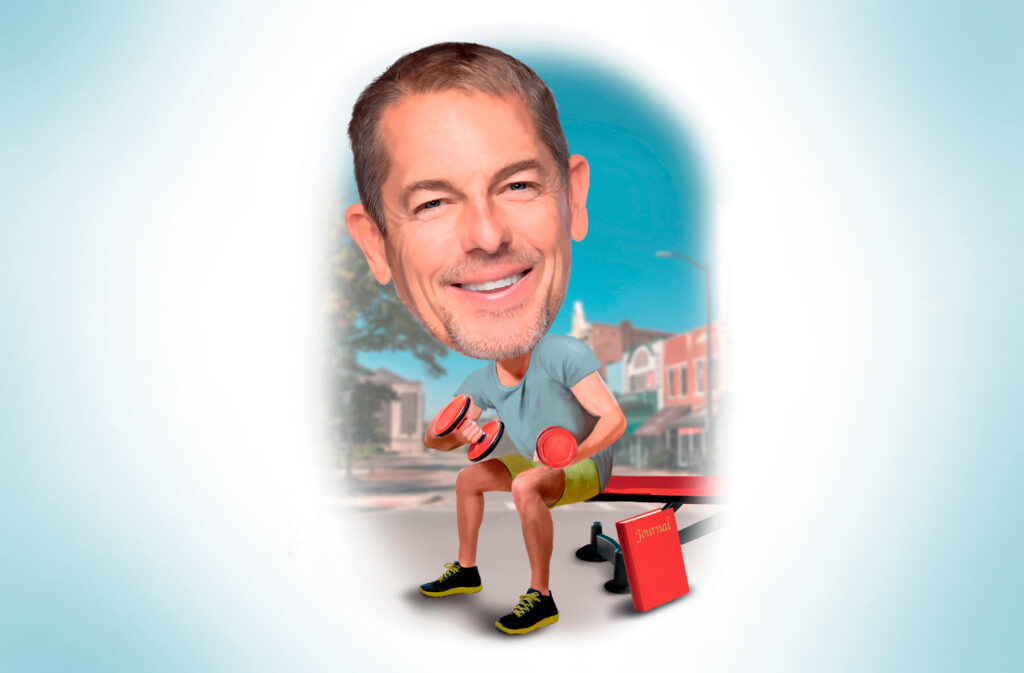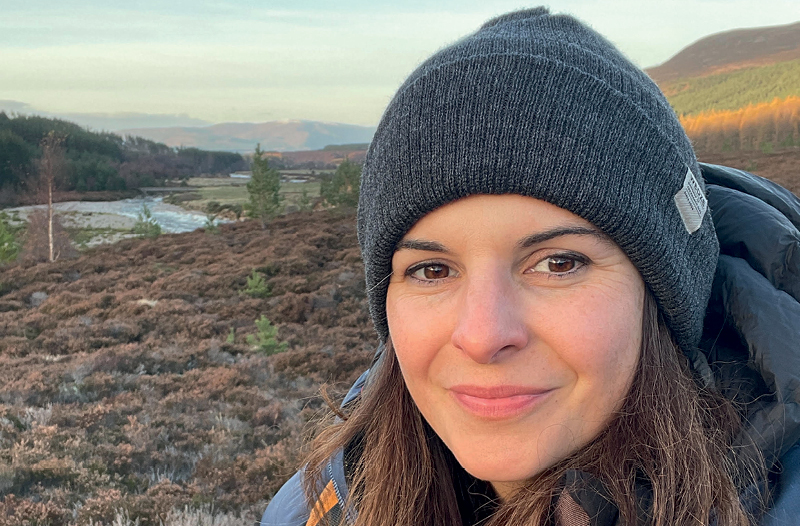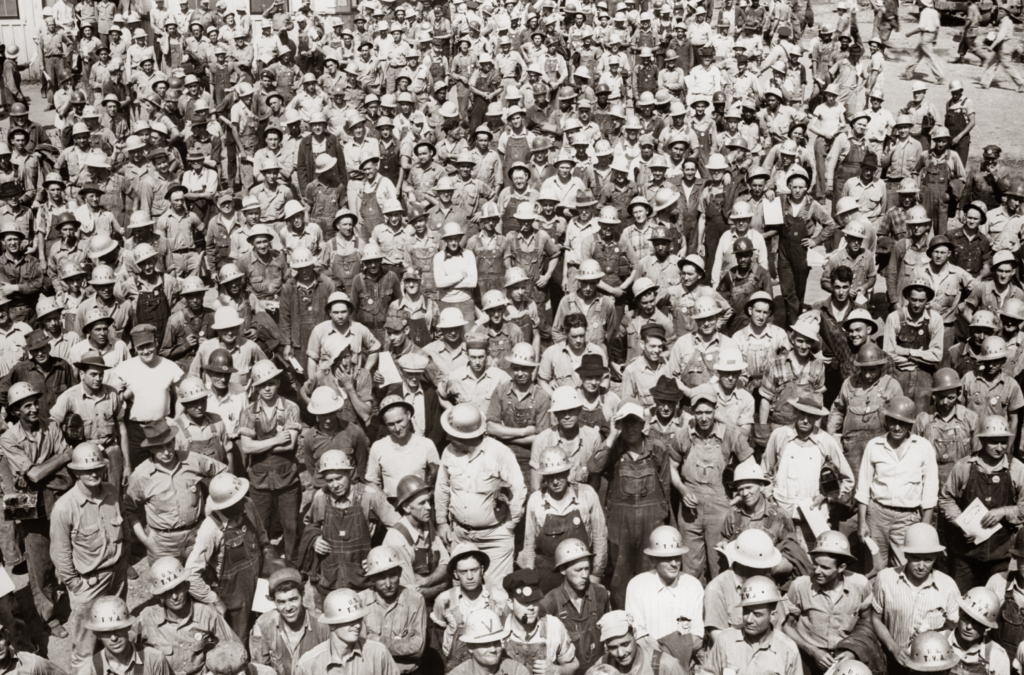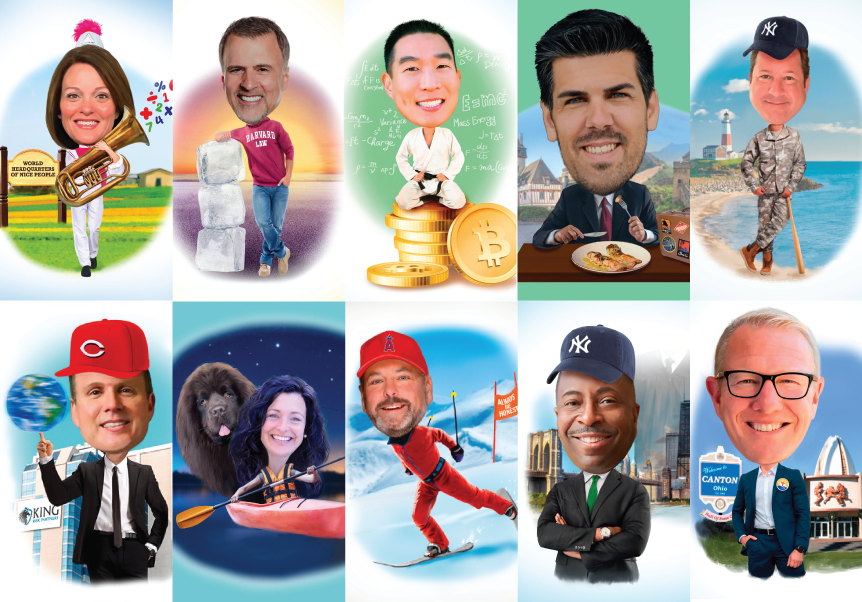
Business as an Adventure

You might say Mark E. Watson III has been a businessman since he was a boy. Infused with an entrepreneurial spirit, he understood early how to succeed. You might also say it was inevitable he wound up in the insurance industry, despite, as he claims, spending his whole life trying not to.
“I’m probably more of an entrepreneur than I am anything else,” insists the 47-year-old president and CEO of Argo Group. “When I think about running Argo, I think about running a business that happens to be in the insurance business. I’m a finance guy. I didn’t grow up an underwriter. I can handle a claim if I need to, but for me it’s more about building a business that happens to be in insurance.”
Argo Group International Holdings is a $7 billion international specialty reinsurance company in niche areas of the property and casualty insurance market. Watson has overseen the company’s transformation from a U.S.-based p-c insurer specializing in workers comp to an international underwriter of specialty insurance and reinsurance products based in Bermuda with operations in the U.S., U.K., Brazil, continental Europe and the United Arab Emirates.
“I’m confident that we’ve built a business that really works,” Watson says. “The strategy that we have today isn’t really any different than it was 10 years ago. We went from $200 million in premium to $2 billion at the end of 2009, but we also had discipline along the way to say, ‘We’re in a soft market; let’s pull back.’ We acquired a lot of business. Really, over the last three to four years we’ve been merging three public companies together and creating one.
“Now we’re growing again, and we feel pretty comfortable that we’re in the right places. I think having a good spread of risk will help us. It certainly gives us more options, but I think it also gives us better perspective. As the world moves ahead, we have a better opportunity to move with it.”
Watson says Argo Group invests in industries that he thinks can grow: energy, technology, professional services and water. He has watched the Dow reclaim levels last seen before the crash of 2008 yet says that recovery hasn’t reached small business, one of Argo Group’s core constituencies.
“Most job creation comes from small employers, not large employers,” he says. “Small businesses really haven’t gotten going again yet. In the U.S., we mainly insure small businesses, so it’s hurt our top line. I think competitive pressure has hurt even more, which is why we’ve kind of been holding back the last few years. But I worry that, if we don’t get small business going again, the economy will continue to lag. Yes, we’ve seen the stock market going up, but a lot of that is coming from corporate efficiency. Where does that leave the future?”
Teen Entrepreneur
As a boy, Watson never thought his future was insurance. One of his grandfathers was a wildcatter who discovered oil in west Texas, and that path initially captured his interest.
“I grew up with all those stories, and I thought, you know, that’d be kind of fun,” Watson says. “But at the time I was graduating from college in 1986, the oil and gas business was on its knees.”
In fact, he had a summer job at an oil and gas company during the time that it was being acquired. “I met the banker who was doing the deal,” Watson recalls, “and I realized, ‘You know, this is not all that different, just a different sort of challenge—maybe I’ll be an investment banker.’ Except the timing didn’t exactly pan out on that one either—the crash of 1987 occurred, and that didn’t work out so well. So I went to New York and joined a law firm.”
Insurance, though, was never far away. Watson’s other grandfather was a San Antonio mortgage banker who also owned a small insurance agency. Watson’s father, Mark Watson Jr., took over the firm and turned it into one of the top agencies in San Antonio before founding his own company, Titan Holdings, which operated specialty property and casualty insurers and related services companies.
“My father used to bring me to his office on Fridays each summer, and I’d just sit and watch him,” the younger Watson says. “When I worked for him between college and law school, he’d have me come sit in his office after my work was finished every day at five, and I would listen to him tying up all the loose ends on the phone and talk with him afterwards. I didn’t realize until many years later how much I learned from watching him run his business. It’s amazing how much you can end up taking in from early experiences like those.”
Watson had an entrepreneur’s spirit even as a child. “I remember as a Boy Scout we’d go away on a camping trip about once a month, and each time I’d get my mother to let me buy $20 worth of candy to take with me. I’d always come back with $50 in my pocket because none of my friends’ parents would allow them to bring candy with them. I had a captive audience,” he says.
Tough Love
His parents were divorced, so he split time between his mother’s home in Houston and his father’s home in San Antonio. He credits both parents for his success.
“There are two kinds of parents,” he says. “There’s the soft kind and the tough kind, and I got the tough kind. My mother stressed proper behavior, and manners were very important to her, but she also had enough trust in me to let me do my own thing. I may have learned a lot about how to run a business from my father, but it was my mother who instilled in us the belief that we can do anything if we work and try hard enough. Growing up, it never occurred to me that I couldn’t accomplish what I wanted to do.”
Watson earned his undergraduate degree from SMU and his law degree from the University of Texas. From there, he headed to New York, where he was an associate attorney with Kroll & Tract, a law firm focusing on international financial services, including insurance. Within a couple of years, he returned to San Antonio as general counsel at Titan Holdings and worked with his father to take the company public. He stayed six years, helping guide the firm through its initial listing on Nasdaq, then on the New York Stock Exchange and then through back-to-back acquisitions by USF&G and St. Paul Insurance.
Not wanting to be part of a large organization, Watson left St. Paul a few months later to take a little time off to get married. But time off didn’t suit him. The urge to try a new adventure soon struck.
Watson tried his hand as a venture capitalist, forming Aquila Capital Partners in Texas with a colleague. And here’s where it gets inevitable. During this time, he decided to accept an invitation to join the board of Argonaut Group, a $3.1 billion property and casualty insurance group based in California. A year later, he was asked to step in and take the reins as president and CEO.
“I learned about the specialty business from being around my father both as a child and working for him at Titan for six years,” Watson says. “Within a year after joining the board at Argonaut, I was spending a lot of time promoting change and proposing that we focus more on the specialty area. My fellow board members eventually said, ‘Fine, why don’t you come do the job then?’”
Watson moved Argonaut’s headquarters to San Antonio in 2001, and in 2007 Argonaut became Argo Group when it acquired Bermuda-based PXRE Group.
“Our strategy hasn’t really changed,” Watson says. “What did change was the world around us. A number of new companies appeared in Bermuda. They were all capitalized with a billion dollars, and they very quickly started diversifying into other parts of not only the reinsurance business but the primary insurance business. I didn’t think it would be long until we started having to compete with them directly in the marketplace and that we better have the same competitive advantages they did by the time they got here.”
Shop Local
Bermuda’s lower tax rates have made the island nation an attractive domicile for multinational firms, but Watson says that taxes weren’t the main reason for the move.
“There is some benefit, but our effective corporate tax rate today isn’t appreciably less than it was a couple of years ago,” he says. “The real advantage is having a broader diversification of risk, which is more capital efficient, and also being down the street from our business partners. When the client and broker show up with millions of dollars of business, it’s good to have your shop window right there with everybody else because then you’re part of the deal. For me that was the real advantage.
“The last bit is that the regulatory environment in Bermuda is much less complicated and more streamlined than in the U.S. If you want to build a new business in Bermuda, you need to talk to one regulator. If you’re going to start a new business in the United States, you’ve got to go to more than 50 separate regulators to accomplish the same thing. We have more than 10 insurance companies here in the U.S. as a part of our insurance group, and I can tell you having to deal with 50 different sets of regulations and dozens of state officials for each and every product we take to market requires a lot of time and expense.”
The merger that made Argo Group an international company did not, however, do much to streamline Watson’s family life. Running the company now requires him to split time between his wife, Ana Paula, and their children in San Antonio and corporate headquarters in Bermuda.
“You tend to find me in San Antonio on Mondays and Fridays,” he says. “I’m usually in Bermuda in the middle of the week, or I’m in our London office or in New York. We have such a decentralized business that I always seem to be traveling somewhere. People often ask: ‘Where do you spend most of your time?’ My short answer is, ‘In the air.’”
But in his free time you can also find him on the water. He skippered a 90-foot boat called Genuine Risk in the last Newport-to-Bermuda race, winning the Royal Mail Trophy. In 2008, he won the Swan 42 National Championship and earlier this year competed in the Etchells World Championship in Sydney, Australia, against America’s Cup skippers.
“Sailing is quite an incubator to practice leadership,” Watson says. “I remember when I was much younger and I was talking with my fellow board members about whether I should come run the company. They said, ‘OK, you’re a young guy. Give us some examples of leadership.’ I found myself telling more stories about yacht racing than I did about running Titan. It wasn’t that I didn’t have a lot of responsibility—I had hundreds of employees that I was responsible for. But when you bring five, six, 10 people together and put them on a boat with a singular goal where everyone is dependent on one another for their success—that takes a lot of practice and short, concise communication.
“Yacht racing is chess on water. You’ve got to think about what your strategy is going to be to get around the racecourse. Running a business is very similar. You need to have the team all working together. You’ve got to figure out where you want to go, and ultimately you have got to find a way to get there before your competitors.”
His colleagues describe Watson as affable, knowledgeable and an innovator.
“Mark is a smart, grounded professional and lives his life passionately,” says Jonathan Brewin, commodore of the Royal Bermuda Yacht Club. “Although competitive, he also can have fun with his sport. For the Argo Group Pro Am Regatta, he brought a stash of large water guns so that his rivals could get suitably soaked during the regatta and then gave the water guns to the Optimists sailors from the Junior Gold Cup event, which made the youngsters very happy and resulted in a fun time on the dock.”
Greg Case, Aon president and CEO, says he values spending time with Watson. “He is a trusted partner, and I very much appreciate the opportunity to spend time with him,” Case says. “Mark is thoughtful and decisive. He is recognized as an innovator and true strategic thinker.”
Fatherly Advice
“I remember one time when I was bristling about the state of the insurance business,” Watson says. “My father said, ‘I’m going to tell you something somebody told me when I was your age, and it’s the same for you: The grass isn’t greener on the other side, it’s just different, and the sooner you figure that out and how to do well what you already do, you’ll be a lot happier. You know what? It ain’t that bad.’ He’s right. I like what I do.
“In the end, I didn’t end up in the energy business. I didn’t end up in the investment banking business. But I do work with investment bankers each week, and I share risk with energy companies every day. So I guess it all worked out OK after all.”




